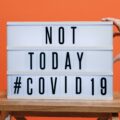One of the greatest disservices that society can do to its young is making them believe academic achievements alone can lead to success. The value of doing well in the formal education system cannot be discounted. Still, one should also acknowledge that a lot more is required to survive the increasing competition of the globalized labor market.
Education shouldn’t be misconstrued as confined within the academic curriculum and its prescribed textbooks. It is much broader and involves soft skills, digital literacy, and technical field expertise, etc. It consists of effective communication, dispute resolution, teamwork and management of its dynamics, taking leadership without having “authority,” and following instructions without feeling undermined. While a high CGPA is incredible, to be a lucrative candidate up for grabs in the job market, one must have a well-balanced portfolio. Assessment of the various steps of admission or selection processes makes it apparent that how well you did in your exams is possibly the least of the recruiters’ concerns.
Employers want to know how well you have prepared yourself for a position. Many applications require an essay written on how the candidates are suited for the opportunity. The piece is the candidates’ chance to convince the assessor that they are better equipped than others to deal with the challenges of the position, which means applicants should show the related and relevant previous work experiences they have. They should demonstrate if and how they dealt with professional curveballs in situations similar to the workplace they have applied. The applications give the candidates the scope to showcase their strengths and their ability to synergize and adapt to new work environments.
References and recommendations prove your credibility and competence, which illustrates your well-rounded portfolio (also known as having a life outside of school). Almost all recruiters ask for an academic and a professional referee, who can give an insight into the applicants’ work ethics and dedication. The assessors find from your referees how well fitted you are in their team. Stellar academics alone cannot ensure a proactive employee, but a dynamic employee can surely learn the trade well over time. Therefore, a 4.00 CGPA is incredible on paper, but if it stands alone without other soft skills and professional expertise, its value gets diminished.
Networking is gold when it comes to job hunting. The presence of references in the application also highlights the importance of having a robust professional network that supports you to progress in your career path. Additionally, knowing credible people and industry leaders who recommend you to prospective employers without being asked or who share appropriate opportunities with you is one of the most significant assets that one can have.
All that said, there is something called “overdoing it.” It is not out of the ordinary to see individuals take up a myriad of work just to add more to their list of “accomplishments” and lengthen their resume. If someone has worked for two years and has experience working with 15 different organizations, it says a few things about them:
- Their lack of goals and visions
- Non-commitment to anyone or a set of causes
- They are not a good investment since they are unlikely to stay in any project for long.
The key to having a versatile portfolio is finding that sweet spot of balance. It is investing in your academics while not overlooking real-life skills. It is internalizing the technicalities of your trade and also learning to deal with the traders. It is knowledgeable enough to take the lead but flexible sufficient to wing it and find solutions as a collective. Ultimately, education, paired with interpersonal skills, professional smarts, work ethics, and immense hard work, can lead to success.

















